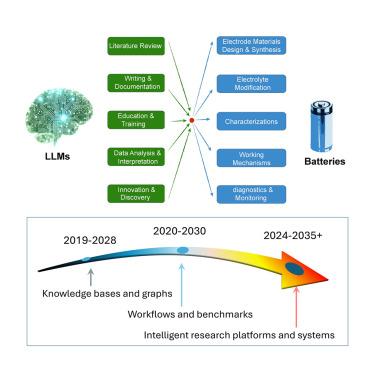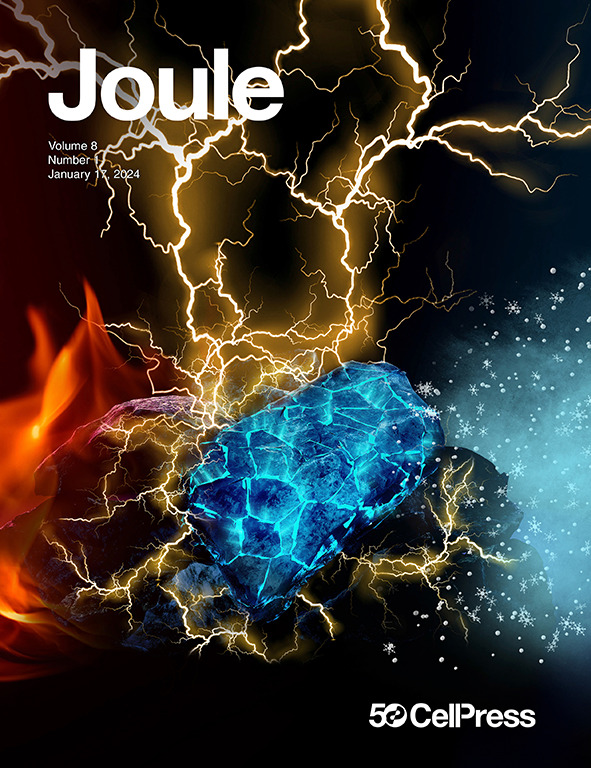Large language models for batteries
IF 35.4
1区 材料科学
Q1 CHEMISTRY, PHYSICAL
引用次数: 0
Abstract
Large language models (LLMs) are advanced artificial intelligence systems capable of solving diverse tasks using language, reasoning, and external tools. Despite their growing deployment in academia and industry, their potential remains underexplored in battery research. This review presents a comprehensive overview of existing and emerging applications of LLMs in the battery field, addressing two critical questions: what can LLMs offer to support battery-related tasks, and how can more effective models be developed for this purpose? We begin by outlining the principles of LLMs and criteria for selecting appropriate models and tools for battery research and development. We then explore the roles of LLMs in text mining, data interpretation, and the development of intelligent battery systems. In parallel, we discuss technical challenges, such as data standardization and sharing, model evaluation, and tool integration. Finally, we propose future research directions with short-, medium-, and long-term goals and highlight more broad perspectives for connecting experts and cross-disciplinary collaborations.

用于电池的大型语言模型
大型语言模型(llm)是先进的人工智能系统,能够使用语言、推理和外部工具解决各种任务。尽管它们在学术界和工业界的应用越来越多,但它们在电池研究中的潜力仍未得到充分发掘。本文全面概述了法学硕士在电池领域的现有和新兴应用,并解决了两个关键问题:法学硕士可以提供什么来支持电池相关任务,以及如何为此目的开发更有效的模型?我们首先概述了法学硕士的原则,以及选择合适的模型和工具进行电池研究和开发的标准。然后,我们将探讨法学硕士在文本挖掘、数据解释和智能电池系统开发中的作用。同时,我们还讨论了技术挑战,例如数据标准化和共享、模型评估和工具集成。最后,我们提出了未来的研究方向,包括短期、中期和长期目标,并强调了专家联系和跨学科合作的更广阔的前景。
本文章由计算机程序翻译,如有差异,请以英文原文为准。
求助全文
约1分钟内获得全文
求助全文
来源期刊

Joule
Energy-General Energy
CiteScore
53.10
自引率
2.00%
发文量
198
期刊介绍:
Joule is a sister journal to Cell that focuses on research, analysis, and ideas related to sustainable energy. It aims to address the global challenge of the need for more sustainable energy solutions. Joule is a forward-looking journal that bridges disciplines and scales of energy research. It connects researchers and analysts working on scientific, technical, economic, policy, and social challenges related to sustainable energy. The journal covers a wide range of energy research, from fundamental laboratory studies on energy conversion and storage to global-level analysis. Joule aims to highlight and amplify the implications, challenges, and opportunities of novel energy research for different groups in the field.
 求助内容:
求助内容: 应助结果提醒方式:
应助结果提醒方式:


